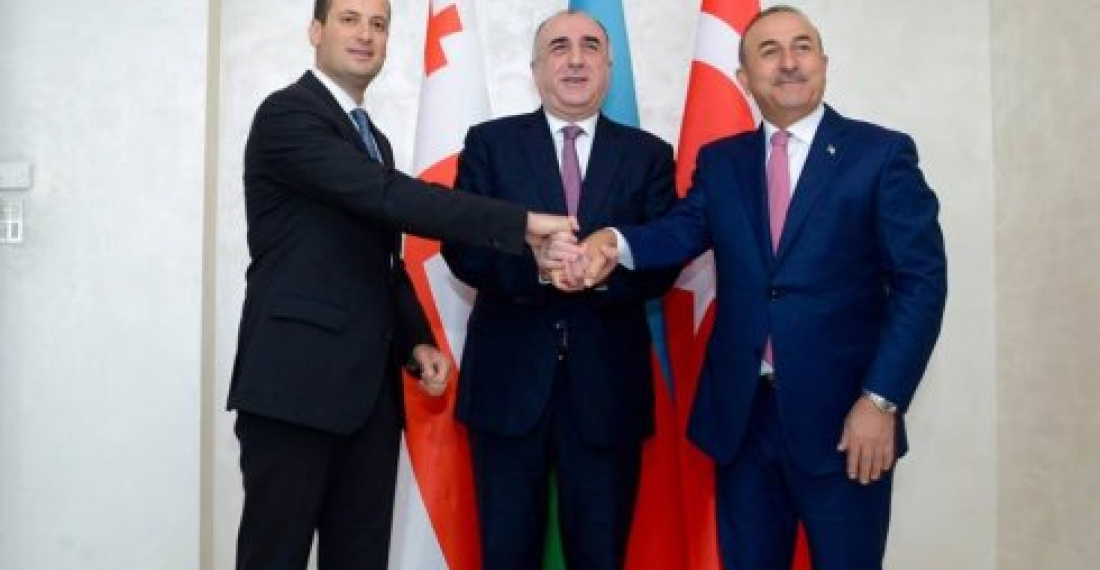Turkey, Georgia and Azerbaijan have issued a joint statement after a meeting of their foreign ministers, held in Baku on Wednesday (6 September) in which they expressed their satisfaction with the growing bilateral and trilateral cooperation between their countries and reaffirmed their strong commitment for further enhancing their cooperation based on their strategic partnership, good neighborliness, and mutual respect and trust.
The statement said that the three countries reconfirmed their mutual respect and strong support for the sovereignty, territorial integrity and inviolability of internationally recognized borders of states and stressed that the existing conflicts in the region undermine peace, stability and economic development and require peaceful resolutions based on the mentioned principles of international law.
The statement says that the Ministers reiterated "the utmost importance of the earliest peaceful settlement of the conflict in and around Nagorno-Karabakh region of the Republic of Azerbaijan and the conflict in Georgia on the basis of principles and norms of international law, particularly, sovereignty, territorial integrity and inviolability of the internationally recognized borders of states, as well as in accordance with relevant resolutions, declarations and decisions of the UN, the OSCE and the Council of Europe".
On economic issues, the statement says that the three Ministers underlined the firm determination of their states to explore new ways to expand trilateral cooperation particularly in the areas that would ensure prosperity for the people of the three countries through economic growth and sustainable development and decided to intensify all efforts to improve their economic and commercial cooperation so as to meet actual potentials to promote investments and trade; and to further strengthen cooperation in the field of energy, transport, agriculture, telecommunications, industry, environment, education, science, culture, tourism and sports through joint projects and programs.
The Ministers also underscored the importance of cooperation in the humanitarian sphere, including culture, education, health care, youth exchange, tourism and sports, which will further expand people-to-people contacts between their countries and expressed their readiness to initiate and promote joint projects and events in these spheres. They reconfirmed their determination to further intensify trilateral dialogue on regional and global issues of common interest, as well as enhance coordination within the frames of the international organizations.
It has also been reported that the next meeting of the three foreign Ministers will be held in Turkey, and that the Ministers were preparing a meeting of the Presidents of the three countries, likely to be held in 2018.
source: commonspace.eu with agencies
photo: The Foreign Ministers of Turkey, Azerbaijan and Georgia at their meeting in Baku on 6 September 2017.






